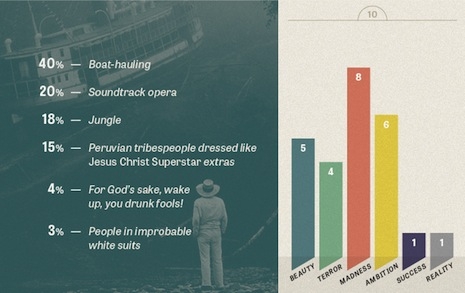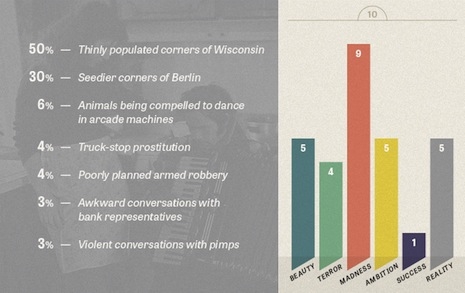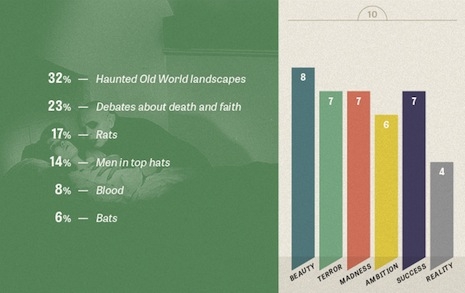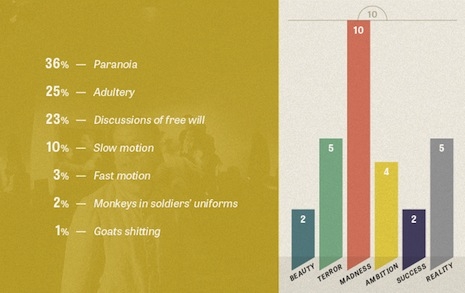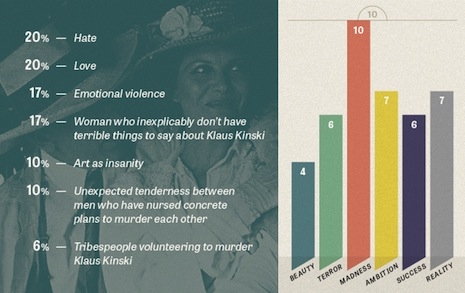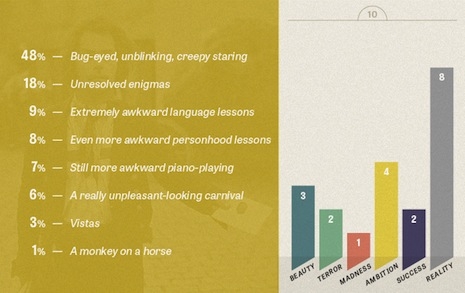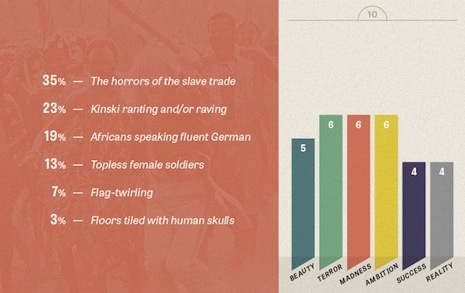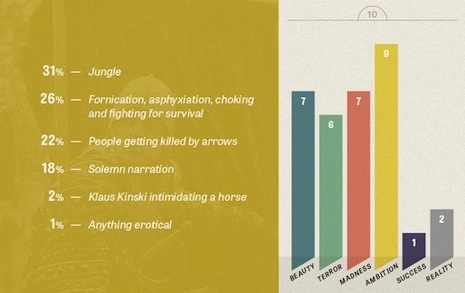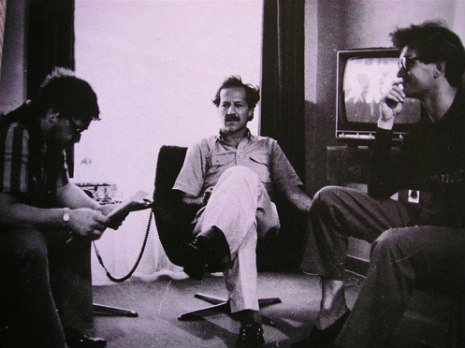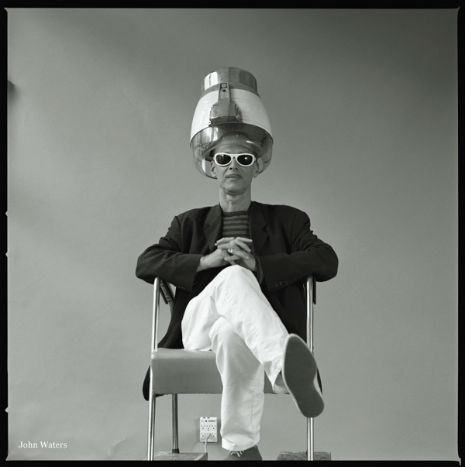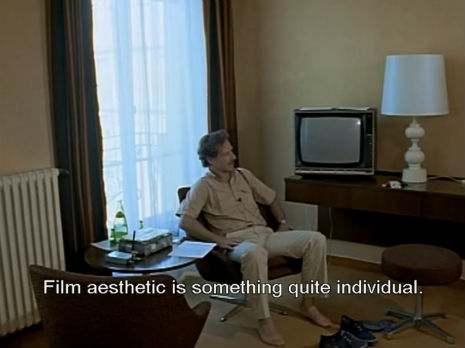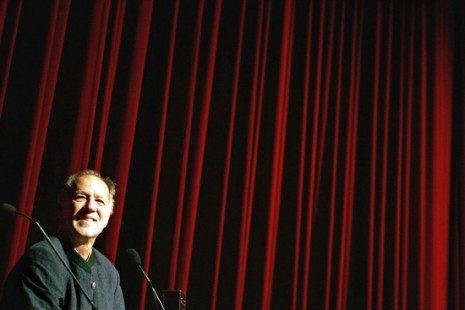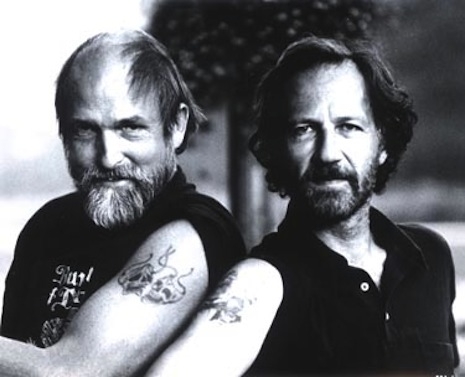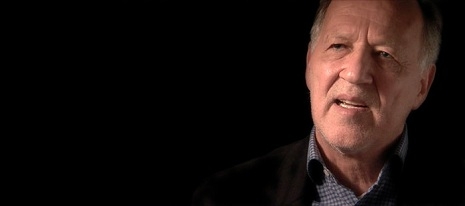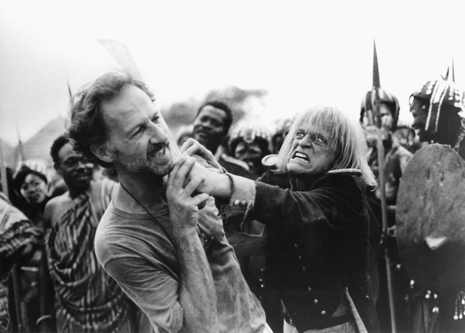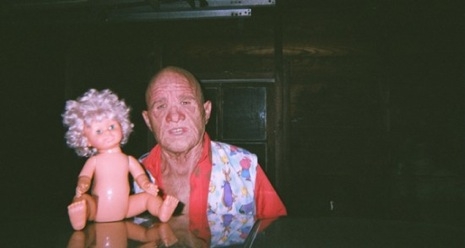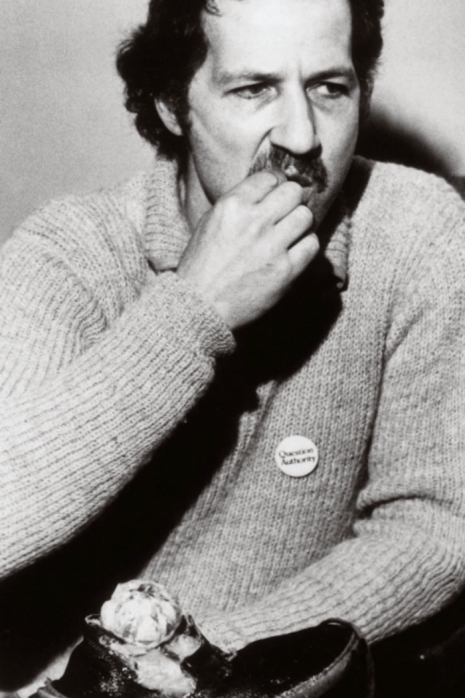
You’re only as good as your word. That’s what I was always told when I was young. Never say something unless you mean it. That was another. Both taught me that words had meaning, purpose, importance—their own intrinsic value—a kind of verbal contract.
(I believe you lovely Americans phrase it “Don’t let your mouth write a check your ass can’t cash.”)
German film director Werner Herzog is a man of his word. You can trust him. You know if he says he is going to do something—well, hell, he’s going to do it. Or at least try his damnedest. And here’s the proof…
Sometime in the late 1970s, Werner Herzog made a bet with a young filmmaker named Errol Morris. Herzog said he would he eat his shoes if Morris ever got round to making a film. Herzog had listened to this young wannabe filmmaker go on and on and on about the kind of films he was going to make—one day. Of course he did, but no one knew that then. Anyway, somehow all Morris’s talk about his great big movie plans never seemed to come to fruition. It was this seeming lack of purpose that irked Herzog and led to his now legendary bet.
Herzog met Morris at Pacific Film Archive (PFA) on the University of California, Berkeley campus. Morris was studying philosophy but ditched it in order to spend time hanging out with all the other filmmakers congregating round the PFA. It was here Morris first met and became friends with Herzog.
Morris was movie buff—he particularly liked film noir. He also had a great interest in Alfred Hitchcock’s Psycho and the true exploits of killer Ed Gein upon which the film was based. Herzog shared this macabre interest.
In 1975, Morris and Herzog hatched a plan inspired by their joint fascination with Gein. The pair agreed to travel to Gein’s home in Plainfield, Wisconsin, where they would disinter the killer’s mother to find out if it was at all possible for Gein to have dug her up. Of course, being a man of his word, Herzog traveled to the location and waited patiently for Morris to arrive. Perhaps unsurprisingly, Morris was a no-show. This led Herzog to abandon their joint venture.
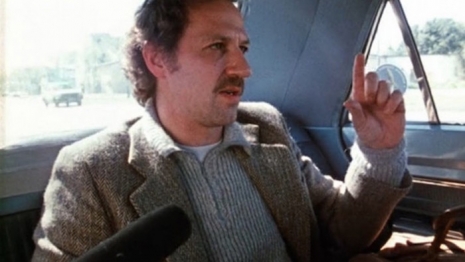
Herzog on his way to eat his shoes.
In 1976, Herzog returned to Plainfield during filming of his movie Stroszek. Here he found Morris living in a small apartment next to Gein’s house. Morris had spent almost a year interviewing residents about the cannibal killer.
Herzog offered Morris work on his latest feature. He also gave Morris an envelope crammed with $2,000 in cash to go and finally start making a film. Morris rejected the money, tossing the envelope out of a window into a parking lot. Herzog went out to the lot, retrieved the money, and told Morris never to do that again. This time Morris took the money.
He used it to research a new film idea about a particularly “gruesome form of insurance fraud” where individuals have a limb amputated in an accident to claim megabucks insurance money. Morris visited “Nub City”—the place where all these fraudsters lived. But he gave up on the idea after receiving death threats. Instead, he decided to make another documentary, this time about a pet cemetery in Napa Valley. This was Gates of Heaven.
When Herzog heard Morris had given up on his amputation film and was now talking about some new idea about dead animals, he wagered Morris that he would eat his shoes if Gates of Heaven was ever made. Whether this was meant as a joke, or a bit of encouragement, or was in fact a genuine bet is a moot point: Herzog (as we know) is a man of his word. He made the bet. Morris had made his first film.
Now Herzog would eat his shoes.
Watch Werner Herzog eat his shoe, after the jump….






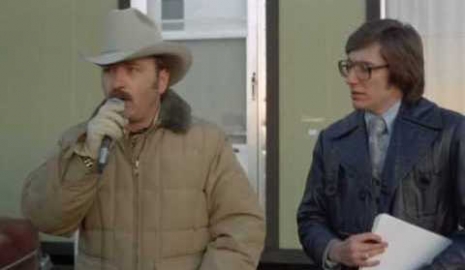
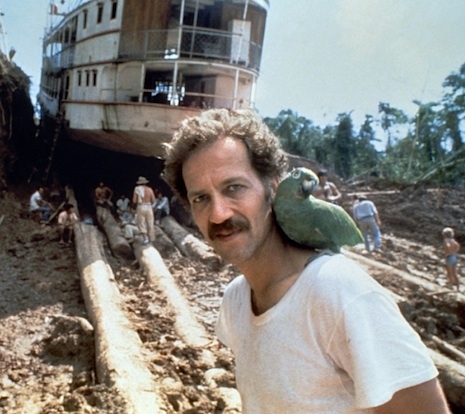
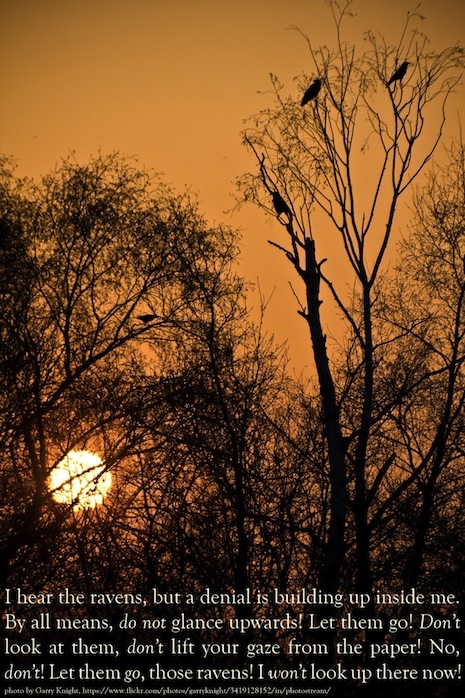
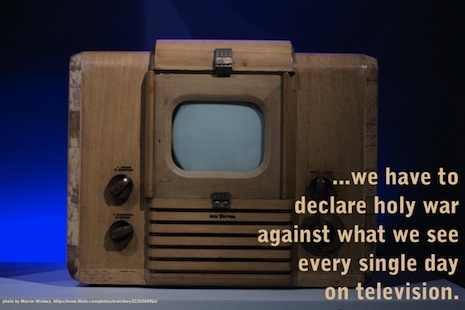

_465_352_int.jpg)
